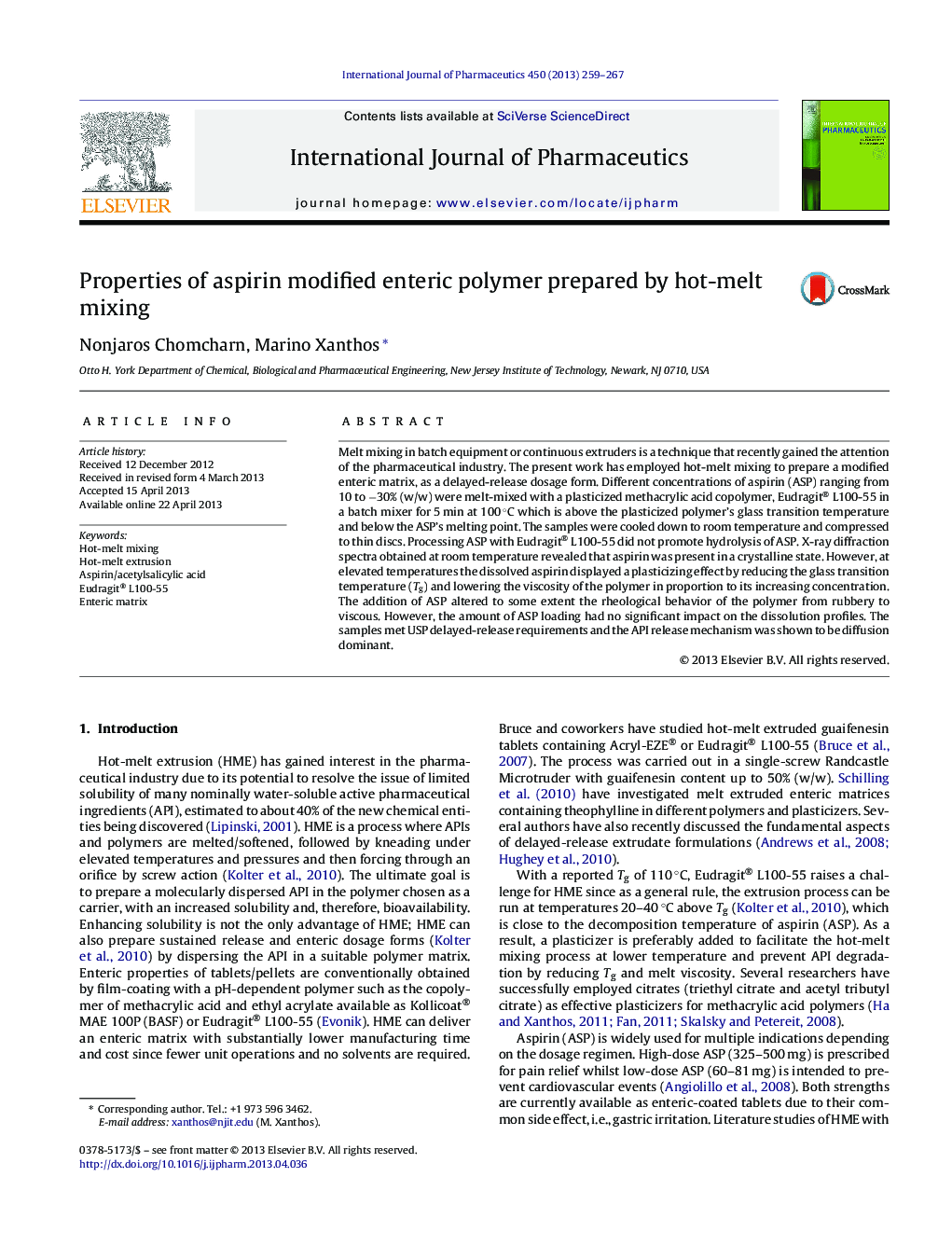| Article ID | Journal | Published Year | Pages | File Type |
|---|---|---|---|---|
| 2502440 | International Journal of Pharmaceutics | 2013 | 9 Pages |
Melt mixing in batch equipment or continuous extruders is a technique that recently gained the attention of the pharmaceutical industry. The present work has employed hot-melt mixing to prepare a modified enteric matrix, as a delayed-release dosage form. Different concentrations of aspirin (ASP) ranging from 10 to −30% (w/w) were melt-mixed with a plasticized methacrylic acid copolymer, Eudragit® L100-55 in a batch mixer for 5 min at 100 °C which is above the plasticized polymer's glass transition temperature and below the ASP's melting point. The samples were cooled down to room temperature and compressed to thin discs. Processing ASP with Eudragit® L100-55 did not promote hydrolysis of ASP. X-ray diffraction spectra obtained at room temperature revealed that aspirin was present in a crystalline state. However, at elevated temperatures the dissolved aspirin displayed a plasticizing effect by reducing the glass transition temperature (Tg) and lowering the viscosity of the polymer in proportion to its increasing concentration. The addition of ASP altered to some extent the rheological behavior of the polymer from rubbery to viscous. However, the amount of ASP loading had no significant impact on the dissolution profiles. The samples met USP delayed-release requirements and the API release mechanism was shown to be diffusion dominant.
Graphical abstractFigure optionsDownload full-size imageDownload high-quality image (84 K)Download as PowerPoint slide
